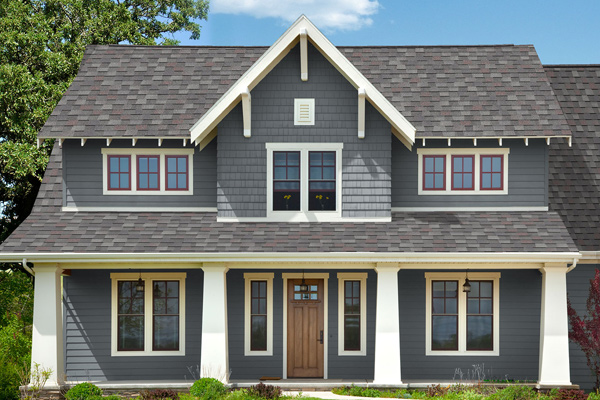AT A GLANCE
- Cost: $$
- Lifespan: 10-20 years
- Color Options: Typically white, gray, or tan. Additional colors are available.
- Composition: Thermoplastic Olefin or Polyolefin
- Advantages: Lightweight. Low maintenance. Monolithic covering. High UV, ozone, and chemical resistance. Membrane flexibility. Fire resistant. Energy Star Certified. Performs with ponding water.
- Disadvantages: Less resistance to punctures. More difficult to repair as it ages. Some issues with animal fat compatibility.
TPO roof systems are becoming a more popular choice for businesses in North Carolina. These single ply membranes — constructed from ethylene propylene rubber — are designed to combine the durability of EPDM rubber with the proven performance of heat welded seams.
INSTALLING TPO ROOFING
TPO can be loosely laid, fully adhered, or mechanically attached:
- Loose Laid: Ballast, such as river rock or pavers, are used to hold the membrane in place.
- Fully Adhered: The membrane is glued in place using commercial grade adhesives rolled on both the backside of the membrane and the substrate.
- Mechanically Attached: Screws and plates are used to hold the membrane in place. This approach is recommended because it prevents water migration under the membrane in case of a puncture.
Product Highlight
TPO (Polyolefin) Roofing Projects
Roofwerks is a TPO roof specialist with the knowledge and experience to properly install Polyolefin roofs on your building. Check out some examples of TPO roofs we have installed in Raleigh, Cary, Durham and the surrounding area.
